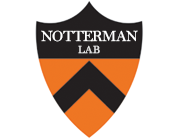Prevention of mammalian DNA reduplication, following the release from the mitotic spindle checkpoint, requires p53 protein, but not p53-mediated transcriptional activity.
Publication Year
1998
Type
Journal Article
Abstract
The tumor suppressor p53 has been identified as a component of a mitotic spindle checkpoint. When exposed to a spindle-disrupting drug such as nocodazole, fibroblasts derived from mice having wild-type p53 are blocked with a 4N content of DNA. Conversely, fibroblasts from p53-deficient mice become polyploid. To learn if transcriptional activation of downstream genes by p53 plays a role in this putative checkpoint, three cell lines were exposed to nocodazole. In one line, p53 protein is not expressed, while the other two cell lines over-express p53. In one of these two lines, the N-terminal transactivation domain is wild-type and in the second, this region contains a mutation that eliminates the ability of the protein to act as a transcription factor. Incubation with nocodazole of cells containing wild-type p53 results in accumulation of both 2N and 4N populations of cells. Under the same conditions, cells containing a transactivation-deficient mutant of p53 accumulate a 4N population of cells, but not a 2N population of cells. Cells entirely deficient in p53 protein become hyperdiploid, and display 8N to 16N DNA content. In all three cell lines, nocodazole elicited an initial increase in mitotic cells, but within 24 h the mitotic index returned to baseline. Expression patterns of cyclins B and D indicated that following entry into mitosis, the cells returned to a G1 state but with 4N DNA content. Subsequent re-duplication of DNA beyond 4N is prevented in cells containing either wild-type or transcriptionally inactive p53 protein. In cells entirely lacking p53 protein, DNA is re-duplicated (without an intervening mitosis) and the cells become hyperdiploid. These experiments indicate that p53 does not participate in the transient mitotic arrest that follows spindle disruption, but is essential to prevent subsequent reduplication of DNA and the resulting hyperdiploid state. This function is intact in a mutant that is transcriptionally inactive.
Keywords
Journal
Oncogene
Volume
17
Issue
21
Pages
2743-51
Date Published
11/1998
ISSN Number
0950-9232
Alternate Journal
Oncogene
PMID
9840938

